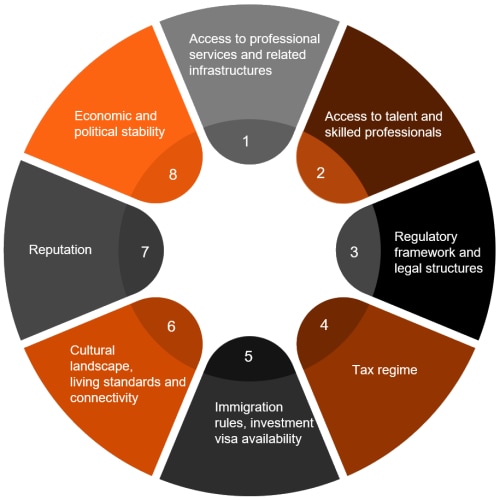What is it? A jurisdiction’s regulatory framework sets out the ground rules and legal regime within which family offices located within its borders must operate. The framework generally oversees aspects like reporting, governance and ownership. Failing to comply with the regulations can create the risk of having the 'licence to operate' withdrawn by the jurisdiction’s financial regulator.
Why does it matter? The regulatory environment is a key consideration when choosing a location, as it’s fundamental to how the family office will operate.
A related factor to consider is the costs involved in complying with regulatory requirements, including not only the fees paid directly to regulators but also the indirect overheads of maintaining compliance. While a relatively low level of regulation overall might mean lower direct costs, overall costs may be increased by specific regulatory obligations in areas such as reporting.
However, the biggest consideration should be the role that the regulatory framework will play in the security of your investments and family office structure. The acid test of the regime’s independence and robustness will come when your family office has a dispute. However, it’s best not to wait until that happens, only to find you’ve made a poor choice.
The regulatory framework: questions to consider
What kind of legal regime applies: common law, civil law, Sharia, another system or a hybrid of several?
How predictable and robust is the application of the regulations and laws?
What are the likely regulatory costs – both direct and indirect?
Are there specific legal structures contemplated for family offices?
What are the implications of the legal regime for structures such as shared ownership among family members?















